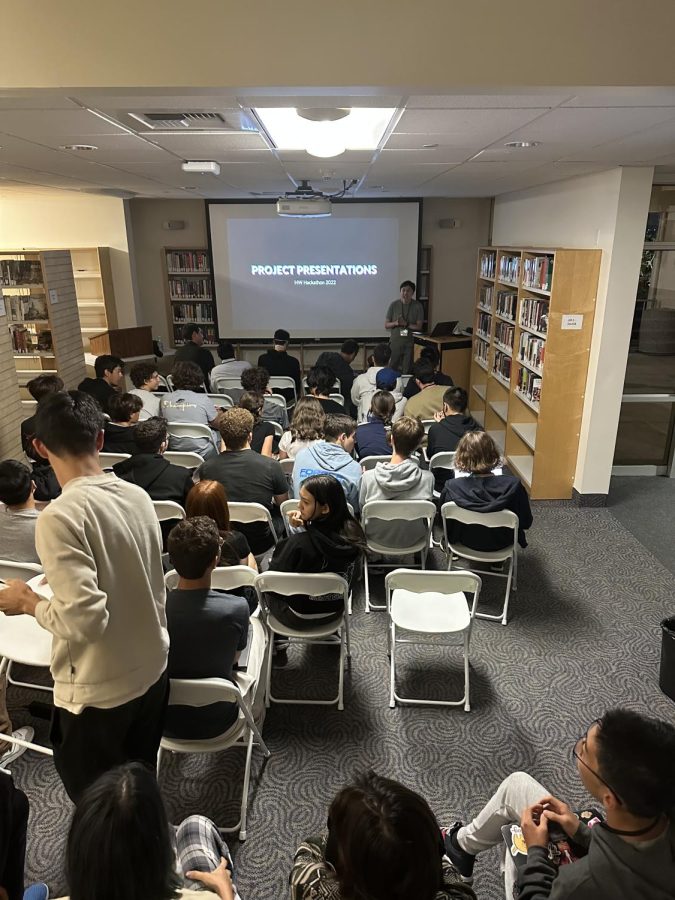Student programmers test abilities at Hackathon
Printed with permission of Grady Ramberg '24
Hackathon participants sit in Mudd Library, preparing to view peer presentations.
October 21, 2022
HackHW hosted the annual Hackathon in Mudd Library overnight Oct. 14 and 15.
Over the two days, participants formed teams of five to design their own technological projects. The different projects consisted of applications, websites and games. Students attended a workshop on web design led by Hackathon Organizer Eric Yoon ’23, as well as two other workshops hosted by HW Venture about pitching and marketing their projects. Additionally, all teams had the opportunity to hear from Software Engineer Max Mednik ’02 about his experience in start-up incubators.
The event culminated in all teams presenting their final projects to a panel of alumni judges. Sam Pulaski ’24 and Andrew Wesel ’24 won first place for their game, which presents pre-generated images to its user, who then has to guess the text the image was based on. To create their game, Pulaski and Wesel used DALL-E 2, an artificial intelligence system that can generate an image from any text.
Hackathon Organizer Luke Collins ’24 said he was happy to see the variation in the different projects.
“I’m very surprised and encouraged by the variety of the projects that placed in the top five,” Collins said. “To me, this just shows how there are so many different applications and ways to bring about change utilizing computer science.”
In past years, the Hackathon has been held over Zoom to accommodate the school’s COVID-19 safety measures. Collins said he enjoys the in-person format of the Hackathon more than the online adaptation of the event.
“I participated in the year we had the Hackathon online and it was a completely different experience,” Collins said. “There’s a certain kind of atmosphere that develops when so many people are cramped in one building for 36 hours. The social and collaborative benefits of having the event in person are indescribable. The fact that we’re in-person creates an environment that wasn’t there in the online hackathon, where it feels like everyone is distanced and separated.”
Wesel said the program he and Pulaski created will soon be available online.
“I was pleasantly surprised to hear I had won,” Wesel said. “I was proud of our project, but there were many other teams who created sophisticated, outstanding apps as well. It was definitely a vote of confidence for our site, and I think both of us are excited to publish a version online in the coming weeks.”
Hackathon Chaperone and Math Teacher Andy Stout said he saw many students were energized by the Hackathon environment.
“When I first arrived, there was loud music blaring in one of the rooms and then there was a student holding another student on his shoulders,” Stout said. “It was a wild party atmosphere. The fun of the Hackathon is that you’re staying with a whole bunch of other students in the library for a 48-hour period. You see the other students working for a large amount of that time and so you’re energized by seeing other students working on other projects.”





























